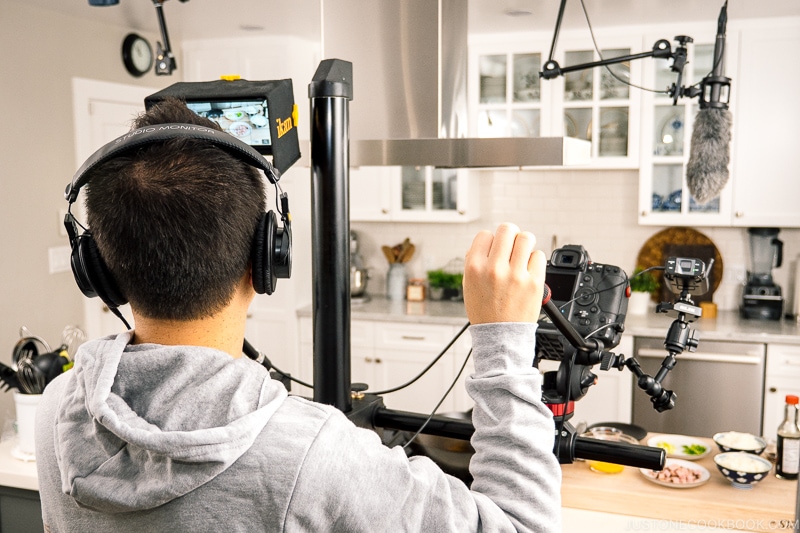Arts, shopping, entertainment, culture, history—find all of them and more in Osaka. This port city and commercial center of Japan hosts many well-known destinations. Explore everything from the grandeur of Dotonbori to the tranquility of Osaka Castle in this ultimate Osaka Travel Guide.

Osaka (大阪) is a multi-faceted metropolis and a must-stop destination for first-time visitors in Japan. One of the main attractions includes the over 380-year-old Shinsaibashi Shopping Street. While you’re there, window-shop or people-watch or merely take in the pulse of this enduring cultural symbol of the city. For thrilling nightlife and scrumptious local foods, head over to Dotonbori and Namba. Also, don’t miss historical sites such as the famous Osaka Castle in the eastern part of the city.

In our ultimate Osaka travel guides, you’ll find a jumping-off point with some of our favorite spots—though the city really begs for more intimate explorations. Enjoy the bright lights, tantalizing foods, and enticing tourist attractions in this third-largest metropolitan city in Japan!
Japan reopened its borders in Oct 2022 and JOC readers have been asking us for travel tips, what to do, and where to eat. We’re in the process of updating and revamping our Japan travel content and to start off, our team has put together concise travel information for Osaka all on one page.
Table of Contents
Top 3 Things To Do in Osaka
Osaka is the 3rd largest city in Japan and there is so much to do (Tokyo is the largest and Yokohama second). It is located in western Japan and the experience is completely different from Tokyo which is in eastern Japan. Here are our recommendations for first-time visitors:
1. Food
Famously known as the kitchen of Japan, Osaka is a mecca for food lovers. You’d find cheap-but-good street food to trendy cafes to fancy Kobe steak dinners on every corner of the streets. Bring your appetite because sampling foods is an integral part of experiencing the city. The must-try: takoyaki, kushikatsu, okonomiyaki, Japanese steak, kitsune udon, and yakiniku.

2. Shopping
If you have shopping on your mind, Osaka won’t disappoint. Browse through large modern department stores like Hankyu and Daimaru or walk through the 380-year-old Shinsaibashi-suji, there is everything for everyone. The main shopping districts in Osaka are Umeda to the north and Namba to the south. Looking for specialized goods? Hit straight to Sennichimae Doguyasuji Shopping Street for kitchen products or Amerikamura for trendy fashion.

3. Activities & Culture
Compared to Tokyo, Osaka has a more down-to-earth vibe but you can expect general good times even with kids in tote. Take in the view from the top of grand Osaka Castle, see the whale sharks at Osaka Aquarium (Kaiyukan), or ride one of the world’s tallest Ferris wheels at Tempozan. Looking for more thrills, then stop by Universal Studios Japan. Beyond these, there are plenty of museums, shrines, observatories, and parks to check out.

Osaka Area Guides
1. Osaka Castle

As one of the most recognizable landmarks in Osaka, the grand Osaka Castle rises high above the ground surrounded by a beautiful park and impressive stone wall. It is a replica castle and is wheelchair/stroller friendly with elevators inside.
2. Dotonbori and Namba

The spirit of ‘kuidaore‘—which translates to ‘eat until you’re ruined’—is best experienced at Dotonbori. There are hundreds of food options and the coolest restaurant signs along the popular street.
3. Umeda

Umeda is one of the major city centers in Osaka with endless dining and shopping options. The gigantic food malls inside the mega department store make a fun stop even if your belly is already full. Other things to do is to observe the city from HEP FIVE FERRIS WHEEL and ride the floating escalator in the cool slick Sky Building.
4. Amerikamura & Shinsaibashi Shopping Street

Amerikamura is well known for the latest trend in Japanese youth fashion. If that’s not your vibe, shop global brands and traditional boutiques on the historic Shinsaibashi Shopping Street.
5. Tsutenkaku and Shinsekai District

Take in the unobstructed view of Osaka from the top of Tsutenkaku Tower and taste the mouthwatering kushikatsu (deep-fried vegetables and meat on skewers) in the vibrant Shinsekai district. Want to be adventurous with your food choices, how about trying Japanese blowfish?
6. Expocity

Expocity in Osaka is perfect for young families visiting Osaka. Visitors get to ride the tallest Ferris wheel in Japan, explore the children-friendly aquarium NIFREL, or shop until they drop at Lalaport Expocity.
7. Tempozan Harbor Village

Tempozan Harbor Village houses incredible whale sharks at Kaiyukan and offers Osaka’s favorite foods at Naniwa Kuishinbo Yokocho. Visitors can also enjoy breathtaking views from one of the world’s tallest Ferris wheels.
8. Univeral Studios Japan

Our comprehensive travel guide for visiting Universal Studios Japan in Osaka. You’ll also find recommended strategies for getting on the popular rides and Harry Potter World.
More Japan Travel Guides & Insider Tips:
I hope you enjoy these Osaka travel guides. Not far from Osaka, both Kobe and Arima Onsen are both great destinations for a short trip. Browse here for more recommendations for your next vacation to Japan!
Sign up for the free Just One Cookbook newsletter delivered to your inbox! And stay in touch with me on Facebook, Pinterest, YouTube, and Instagram for all the latest updates.










Hi Nami & JOC,
Thank you for your tips for Osaka travel. I will be visiting Osaka soon to visit elderly aunts, uncle and some middle aged cousins. I have been trying very hard to think of some good omiyage to take to them from California but I am having a hard time coming up with something they might like. I have not been back to Japan in several decades and no longer know what elderly people in Japan might like. Do you have any suggestions (preferably not too much food omiyage since they seem to have a lot of dietary restrictions). Thank you so much.
I always look forward to your Just One Cookbook emails. Thank you for all your hard work.
Hi Min,
We sometimes struggle to find the appropriate omiyage as well since Japan seems to have everything but even better. What we’ve gifted in the past are kitchen towels that feature local sights (like San Francisco-themed), a variety of nuts, and unique kitchen tools. The important part is that the gifts come from your heart. Avoid chocolate and other foods that will melt in hot weather and doesn’t do well with humidity.
Thank you. I really appreciate you taking the time to reply.
Dear JOC guides, I agree with your Osaka tips, but would like to add one more absolutely must-visit attraction. The Museum of Oriental Ceramics – http://www.moco.or.jp. This will give the visitor a unique insight into ceramics as the combination of art, utility and crafts. And it will make you appreciate the role of tableware in Japanese food culture. Enjoy!
Hi Herman,
Thank you for your suggestion!
Thanks for this article. I LOOOOOVED Osaka!!! When I visited in 2019 I could immediately tell how it had a different vibe to the city. I felt like everyone and everything about it was very sophisticated, youthful, modern.. it was great. I thought it felt very different from the busy Tokyo. I was able to go to Osaka castle (I went on a tour bus called the wonderloop), USJ(only the citywalk), did a lot of shopping, and of course dotonbori where I ate too much 😁. I spent only 2 nights there before going to Kyoto but if I had known was only 30-1hr train ride away I would’ve stayed longer in Osaka. Definitely want to go back here and explore more!
Hi Mariko, Osaka definitely has a different vibe from Tokyo. Glad you have such great memories for it and the food is for sure a highlight!
While video dates don’t matter much for cooking videos, for relavancy sake dates are important for people looking to use travel information. For me I’d rather view travel sites with current information especially with covid episode and many places have altered entry hours and days or are closed down. Please consider adding travel ates on your travel articles.
Hi Renee, the travel guide locations we share are usually evergreen and have been there for quite a while. We avoid sharing trendy places as they don’t last long. We also verify that the locations are open prior to sharing.